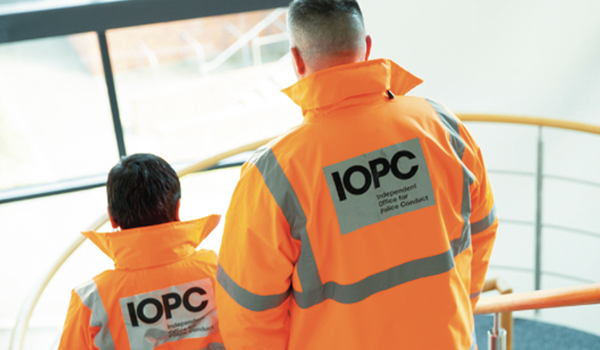IOPC bolsters investigations ranks in major transformation project
The Independent Office for Police Conduct (IOPC) is bolstering its investigations units across England and Wales as part of a major transformation project.
The move will see a cohort of 40 new trainee investigators join IOPC operations teams in two waves – October and early 2026 – as they embark on their Professionalising Investigations Programme (PIP1) endorsed by the College of Policing.
It takes the total number of trainees to have joined the IOPC in the past 18 months to almost 100 – and they include the first to be PIP trained in line with the national standard of investigating used by police forces.
An additional 36 recruits have also joined via the IOPC’s Direct Entry programme for those with previous investigative experience.
It is part of a wider transformation programme designed to improve the quality and timeliness of IOPC investigations and to take on increasing numbers of independent investigations to increase trust and confidence in the police complaints system.
Director General of the IOPC, Rachel Watson, said: “We’re transforming and reenergising the IOPC. We’re bringing in new talent alongside experienced investigators who have transferred from other bodies with investigations remits including policing, HMRC, the prison service, legal, and the corporate sector.
“They will all be PIP trained, establishing parity between our investigators and those in the police service, and the training will soon be rolled out to existing teams. The IOPC programme covers the full PIP curriculum, plus additional police misconduct legislation and processes.”
She added: “We received 1,300 applications in the space of a week to join our new investigator scheme. They’ll make us a more diverse organisation as applications are from a broad spectrum of personal and professional backgrounds.
“And we had 450 applications for 11 Decision Maker roles, the most senior posts in our investigation teams, including from people vastly experienced in managing major investigations. It illustrates that people want to work for us.
“Our recruitment drive, as part of a wider transformation project, will increase our productivity so we can do more high-quality, timely investigations and reviews, and make improvements across the police complaints system.”
The IOPC’s transformation programme will see it move from a regional to a national operating model so that resources can be deployed where they are needed most based on national priorities.
It has seen the creation of a new high-level team of Complex Decision Makers to oversee the IOPC’s most challenging, detailed and, at times, contentious investigations.
They will have no line management duties or day-to-day case management allowing them to focus on making crucial decisions in major cases of national significance for policing and communities.
And a new Operational Policy Group will be established, which will develop a Decision Making Framework, update decision making training and guidance, and monitor the quality and consistency of decision making across IOPC operations.
Ms Watson added: “The move to a national model makes us a more agile organisation, able to respond at pace with specialist knowledge where there is greatest need.
“But it’s important we retain our regional footprint to maintain local knowledge and there will still be a physical presence of Decision Makers, Case Supervisors and Lead Investigators in our regional hubs.”
The IOPC has around 250 investigators, plus 34 existing trainee investigators, working in its operations teams based in Canary Wharf, Quinton, Cardiff, Croydon, Sale and Wakefield.


